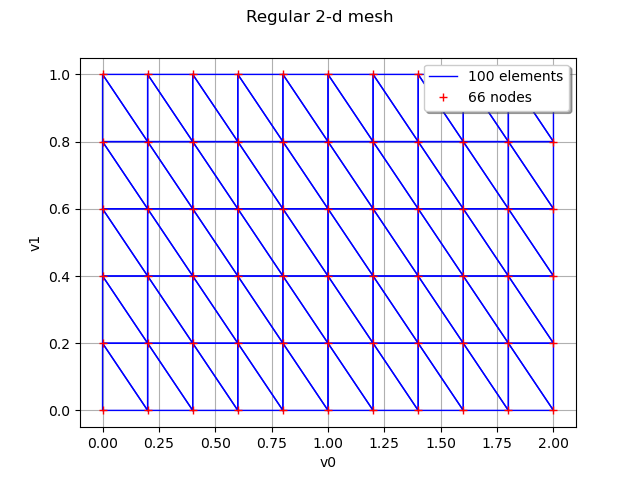Note
Click here to download the full example code
Export a field to VTK¶
The objective here is to create a field and export it as a VTK file. A field is the agregation of a mesh of a domain
and a sample of values in
associated to each vertex of the mesh.
We note the vertices of
and
the associated values in
.
A field is stored in the Field object that stores the mesh and the values at each vertex of the mesh. It can be built from a mesh and values or as a realization of a stochastic process.
import openturns as ot
import openturns.viewer as viewer
from matplotlib import pylab as plt
import math as m
ot.Log.Show(ot.Log.NONE)
First, we define a regular 2-d mesh
discretization = [10, 5]
mesher = ot.IntervalMesher(discretization)
lowerBound = [0.0, 0.0]
upperBound = [2.0, 1.0]
interval = ot.Interval(lowerBound, upperBound)
mesh = mesher.build(interval)
graph = mesh.draw()
graph.setTitle('Regular 2-d mesh')
view = viewer.View(graph)

We now create a field from a mesh and some values
values = ot.Normal([0.0]*2, [1.0]*2, ot.CorrelationMatrix(2)
).getSample(len(mesh.getVertices()))
for i in range(len(values)):
x = values[i]
values[i] = 0.05 * x / x.norm()
field = ot.Field(mesh, values)
We can export the field to a VTK files. It can be read later with an external program such as Paraview.
field.exportToVTKFile('field.vtk')
Display figures
plt.show()
Total running time of the script: ( 0 minutes 0.139 seconds)
 OpenTURNS
OpenTURNS